DeNeen L. Brown On 'The Fire and the Forgotten'
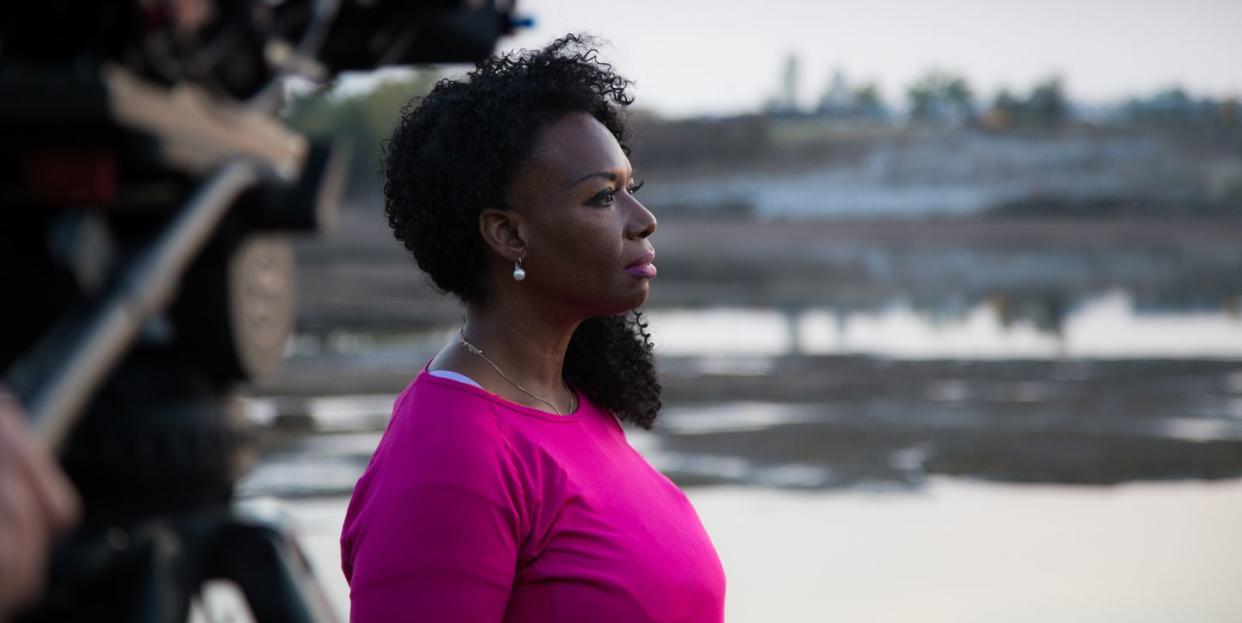
- Oops!Something went wrong.Please try again later.
Although seasoned Washington Post reporter DeNeen L. Brown proudly claims Oklahoma as her home, she says that she does not recall her family ever speaking about the Tulsa Race Riot of 1921. But that doesn’t mean it didn’t affect them; the scars on her paternal grandmother’s back speak to a painful time in her family’s personal history and, like for many Black families, the Tulsa Massacre—which took place 100 years ago today and resulted in the brutal murder of Black men, women and children, the burning and bombing of homes and buildings, and the decimation of the town of Greenwood, also known as the Black Wall Street—is a painful memory that still exists to this day.
In 1997, when the Tulsa Race Riot Commission began collecting stories, Brown followed her compulsion to study its findings and report stories, which ultimately led to her being asked to participate in a documentary project that became Tulsa: The Fire and the Forgotten, airing May 31 on PBS. The project also offered a chance to bring healing and closure to some of the Black families of Tulsa and to break the hold of a painful memory that her own family has lived with for 100 years.
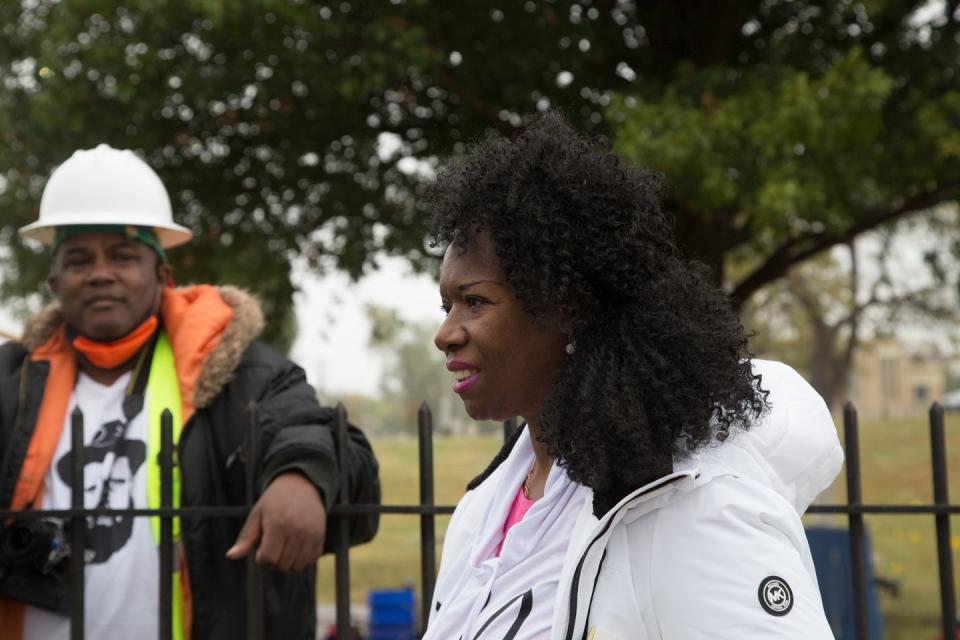
What started out as a childhood quest for answers to questions not asked in any of Brown’s history books has become a lifelong mission to undercover a troubled history and, in the process, heal a people. At the very least, Brown hopes that this film, scheduled to air in coordination with the 100-year anniversary of the murders, will create a clearing within which honest exploration and understanding can be achieved. T&C spoke to Brown about Tulsa: The Fire and the Forgotten, premiering Monday, May 31 on PBS, and what she hopes the outcome of viewing such a powerful film will be.
You’ve shared that your family is from Oklahoma. Do you remember the Tulsa Massacres being talked about or discussed?
It feels like I’ve known about it for a long time. My people are from Oklahoma. I was born in Oklahoma and my ancestors are buried there, my father’s side of the family. My great grandmother lived in Tulsa [and] my paternal grandmother, Mama Helen, was born in Boley, an all-Black town 60 miles from Tulsa. As we know now, a lot of Black people fled the Tulsa Race Massacre for the surrounding Black towns. I was born in “the city.” As a child I was very curious about Black people’s history, and I wasn’t finding it in my history books. This is a story that lives with me and my family. After the massacre in 1921, a lot of Black people just whispered about it and white people stopped talking about it. It was dangerous to talk about it. They feared that kind of violence could happen again. There were a lot of secrets that Black people kept just to survive. Sometimes they felt their children about it, and sometimes they didn't, so there were a lot of stories that were left untold within Black families.
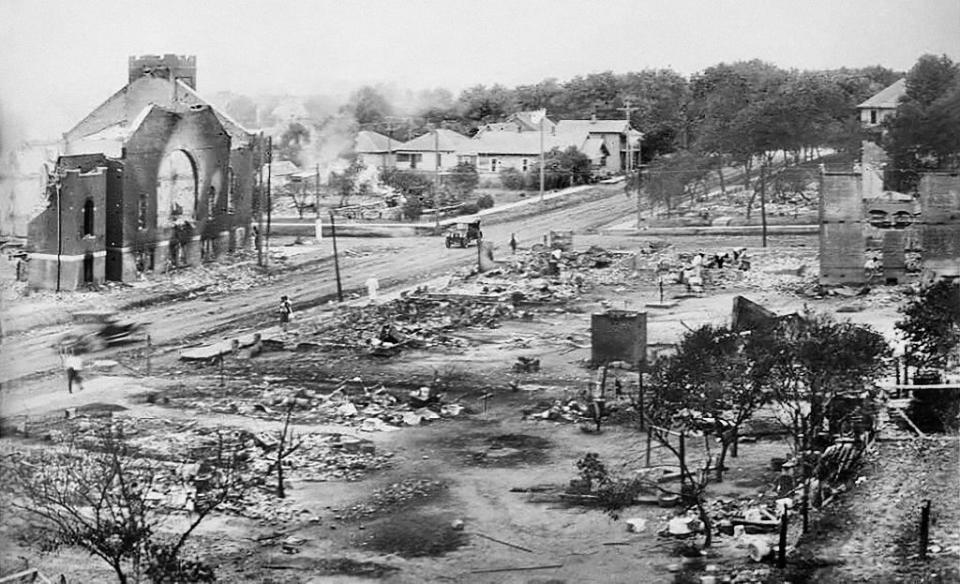
A lot of people were introduced to the Tulsa massacre through its depiction in HBO's Watchmen—the storyline was championed by the series’ star, Regina King. What are your thoughts of this depiction on TV and what do you hope to accomplish with your documentary?
I did watch Watchmen. It was great, and I know that a lot of really smart people across the country and across the world first learned about the massacre in watching Watchmen. Regina King was getting a lot of questions from people like, “What? Did this really happen?” and she actually tweeted out one of the stories that I wrote in the Washington Post in response—which was a real honor. So yeah, Watchmen brought it into the light—I guess that's one way of putting it.
Why do you think that it's so important to revisit history and remember the Tulsa Massacre?
Great philosophers and scholars have often said that if you don't know your history, you’re doomed to repeat it. Stories have to be told. Stories like this, it’s absolutely essential that people know about them so that it doesn’t repeat itself. The history of racial terror and violence against Black people [also] provides a context for current events. They didn't teach us about the 1921 Tulsa Race Massacre. They deliberately left it out of the textbooks, so it's great that a film like this will help provide an education to students, young people and adults [so] they can learn about this really important part of history.
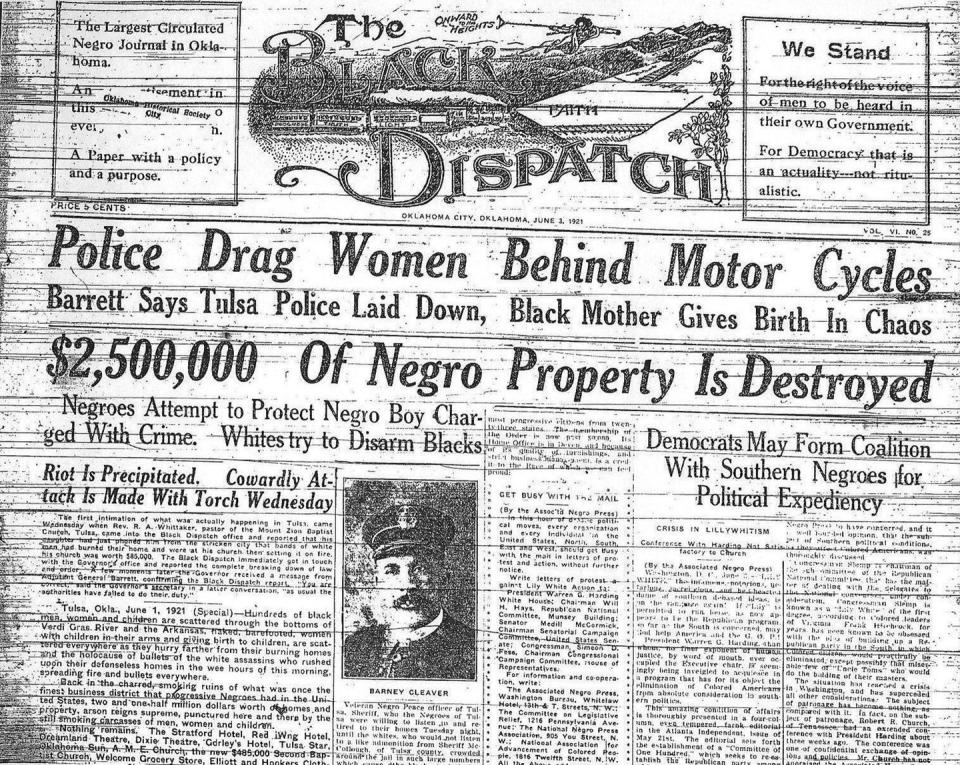
How did you become involved with this PBS documentary and has your involvement influenced the type of stories that you want to tell going forward?
At my heart, I'm an old-fashioned newspaper reporter. Journalism is such an important job in our country—we are the watchdogs of society. So, I really take that to heart to tell the stories, and we are mandated to hold governments accountable, to ask questions, sometimes the questions that ordinary citizens may not be able to ask. That’s why I’ve been a reporter for The Washington Post for 35 years. That’s what shaped me. In 2018 Jonathan Silver, the director of this film, sent me an email that said, “Hey, I've been reading your coverage of Tulsa. Do you mind if I follow you around on camera?” And I was like, “sure, no problem.”
In your reporting on this story, was there anything that you learned about massacre that you just can’t get out of your mind?
I’ve written dozens of stories about Tulsa, and what stays with me is when the white mob descends on Greenwood, which Booker T. Washington named “the Black Wall Street” and starts shooting Black people. I’ve read several survivors’ witness accounts and there are several that stay with me. George Monroe, [who] at the time of the massacre [was] five, tells the story of his mother telling George and his sister to run and hide under the bed. So, they run and hide under the bed. And George sees the feet of the white men that came into his house, the mob, and they're taking stuff—they're looting. One of them steps on his finger and George’s sister covers George’s mouth to keep him from screaming, and then George watches them as they set the curtains on fire. George escaped with his parents and sister from a burning house. And when you watch them tell that story, by that time he's an old man, but he tells it from the eyes of a child. That story stays with me. When I’m talking, it sounds like I’m reading a screenplay, but this is not. This is fact. The Tulsa Race Riot Commission that studied this—they began collecting stories in 1997—write in their report: History has a record of things certain… these facts are certain.
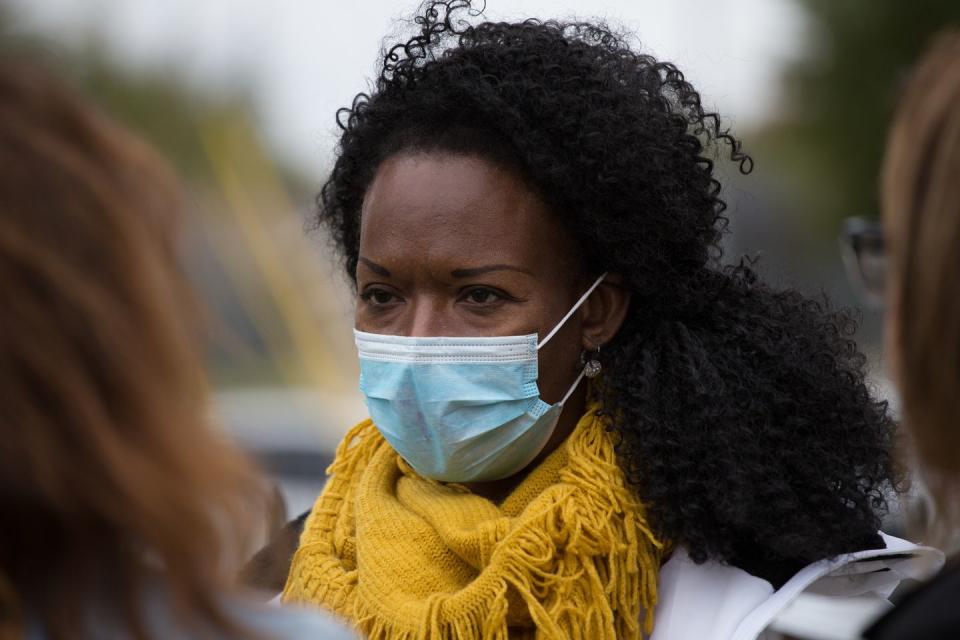
We cannot change the past, but for people who seek understanding and change in the present, where do they begin?
When a story is told, it has the power to change the world. My hope as a person [and] as a writer is that people will take it upon themselves to educate themselves more about the atrocities that happened across this country and across the world to indigenous and African people. One of the things I tell my students is, become anti-racist. Becoming anti-racist essentially means to become actively engaged in the fight against racism and oppression, and actively engaged in the fight for people—all people. Watching the film, I do hope the audience comes away with knowledge about this event, but then begins to pursue their own individual curriculum and educate themselves on racism and its impact. I came up with a whole anti-racism curriculum and reading list and videos to watch. I was on a radio interview and the host, a white man, said he could never understand racism. I said, "Well, have you ever been hit by a two by four? If someone came to you and said they were hit by a two by four, do you think you might understand how painful that is?" Racism is exactly the same—it’s like being hit with a two by four upside your head, across your back, across your knees, your feet, toes every single day. It’s painful. I tell audiences that you have to seek an understanding of racism the same way as if you were seeking water in a hot desert. You have to want to gain the knowledge and then keep trying to understand it, because it's a process.
Today in America, Black people are still being targeted and killed. We're still disproportionately socio-economically disadvantaged. Do you think that there ever will truly be a day, in the words of Rev. Dr. Martin Luther King, when we shall overcome?
Yes. I'm idealistic. I believe there are two powerful forces in the world. One is fear and one is faith, and faith is more powerful than fear. So yes, I think with faith and hope and seeking an understanding about racism and oppression, that someday, just like John Legend and Common sing in that song “Glory,” someday, justice will rule down like a river.
You Might Also Like
